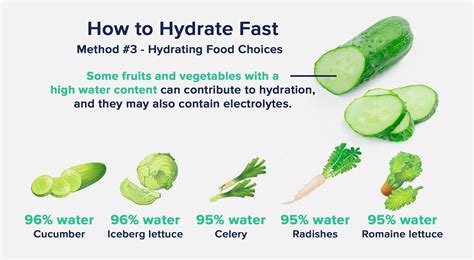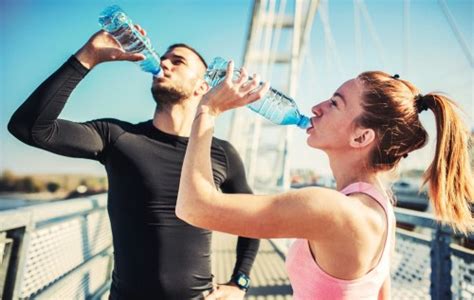Intro
Replenish fluids fast with water, boosting hydration levels and overall health, while combating dehydration and fatigue with rapid rehydration techniques.
Staying hydrated is essential for our bodies to function properly. Water makes up approximately 60% of our body weight and plays a crucial role in many bodily functions, such as regulating body temperature, transporting nutrients and oxygen to cells, and removing waste products. Despite its importance, many of us do not drink enough water, leading to dehydration and related health issues. In this article, we will explore the importance of hydrating quickly with water, its benefits, and provide tips on how to incorporate more water into our daily lives.
Drinking enough water is vital for maintaining proper bodily functions, and even mild dehydration can cause symptoms such as headaches, fatigue, and difficulty concentrating. Furthermore, dehydration can lead to more severe health issues, such as kidney stones, urinary tract infections, and even organ failure. On the other hand, drinking enough water has numerous benefits, including boosting energy levels, improving skin health, and supporting weight loss. With the many benefits of hydration, it is essential to prioritize drinking enough water throughout the day.
In today's fast-paced world, it can be challenging to stay hydrated, especially for individuals with busy schedules or those who engage in strenuous physical activities. However, with a little planning and awareness, it is possible to hydrate quickly and effectively. By understanding the importance of hydration and making a few simple changes to our daily routines, we can improve our overall health and well-being. In the following sections, we will delve deeper into the benefits of hydrating with water, discuss the best ways to stay hydrated, and provide practical tips for incorporating more water into our daily lives.
Benefits of Hydrating with Water

- Boosting energy levels: Even mild dehydration can cause fatigue, headaches, and difficulty concentrating. Drinking enough water can help to boost energy levels and improve cognitive function.
- Improving skin health: Water helps to flush out toxins and waste products from the body, which can improve skin health and reduce the appearance of acne, wrinkles, and other skin problems.
- Supporting weight loss: Drinking enough water can help to suppress appetite, improve metabolism, and enhance weight loss efforts.
- Maintaining proper bodily functions: Water is essential for many bodily functions, such as regulating body temperature, transporting nutrients and oxygen to cells, and removing waste products.
How Much Water Should We Drink?
The amount of water we should drink daily is a common topic of debate. While there is no one-size-fits-all answer, the general recommendation is to drink at least eight 8-ounce glasses of water per day. However, this can vary depending on factors such as age, sex, weight, and activity level. For example, athletes or individuals who engage in strenuous physical activities may need to drink more water to stay hydrated.Best Ways to Stay Hydrated

- Drink water regularly throughout the day: Aim to drink at least eight 8-ounce glasses of water per day, and space out your water intake to stay hydrated throughout the day.
- Eat hydrating foods: Foods such as watermelon, cucumbers, and celery are high in water content and can help to contribute to our daily hydration needs.
- Avoid sugary drinks: Sugary drinks such as soda and juice can actually dehydrate the body, so it is best to avoid them altogether.
- Monitor urine output: If your urine is pale yellow or clear, it is a good sign that you are drinking enough water. Dark yellow or amber-colored urine can indicate dehydration.
Tips for Incorporating More Water into Your Daily Life
Incorporating more water into our daily lives can be challenging, but there are several tips that can help. Here are some practical tips for staying hydrated:- Carry a water bottle with you: Having a water bottle with you throughout the day can serve as a reminder to drink more water.
- Set reminders: Set reminders on your phone or put notes in strategic locations to remind you to drink water throughout the day.
- Make water more flavorful: Add slices of lemon, lime, or cucumber to your water to give it a refreshing taste.
- Monitor your water intake: Keep track of your water intake by using a hydration app or a physical log.
Common Myths About Hydration

- Myth: We should drink eight 8-ounce glasses of water per day. Truth: While drinking eight 8-ounce glasses of water per day is a good starting point, the amount of water we need can vary depending on factors such as age, sex, weight, and activity level.
- Myth: All fluids count towards our daily hydration needs. Truth: While all fluids can contribute to our daily hydration needs, some fluids such as soda and juice can actually dehydrate the body due to their high sugar content.
- Myth: We can get enough water from food alone. Truth: While some foods are high in water content, it is unlikely that we can get enough water from food alone to meet our daily hydration needs.
The Importance of Electrolytes
Electrolytes such as sodium, potassium, and calcium are essential for maintaining proper hydration levels. These minerals help to regulate the balance of fluids within the body and are lost through sweat, urine, and other bodily functions. Replenishing electrolytes is especially important for athletes or individuals who engage in strenuous physical activities.Hydration and Exercise

- Drink water before, during, and after exercise: Aim to drink at least 16-20 ounces of water 1-2 hours before exercise, and 7-10 ounces of water every 10-15 minutes during exercise.
- Monitor urine output: If your urine is pale yellow or clear, it is a good sign that you are drinking enough water. Dark yellow or amber-colored urine can indicate dehydration.
- Replenish electrolytes: Electrolytes such as sodium, potassium, and calcium are lost through sweat and other bodily functions. Replenishing electrolytes is especially important for athletes or individuals who engage in strenuous physical activities.
Hydration and Aging
As we age, our bodies undergo several changes that can affect our hydration levels. Here are some tips for staying hydrated as we age:- Drink water regularly throughout the day: Aim to drink at least eight 8-ounce glasses of water per day, and space out your water intake to stay hydrated throughout the day.
- Monitor urine output: If your urine is pale yellow or clear, it is a good sign that you are drinking enough water. Dark yellow or amber-colored urine can indicate dehydration.
- Avoid sugary drinks: Sugary drinks such as soda and juice can actually dehydrate the body, so it is best to avoid them altogether.
Conclusion and Final Thoughts

We invite you to share your thoughts and experiences with hydration in the comments below. Have you found any effective ways to stay hydrated throughout the day? Do you have any questions or concerns about hydration? Let us know, and we will do our best to provide helpful advice and guidance.
What are the benefits of drinking water?
+Drinking water has numerous benefits, including boosting energy levels, improving skin health, and supporting weight loss. It also helps to regulate body temperature, transport nutrients and oxygen to cells, and remove waste products.
How much water should I drink per day?
+The amount of water we should drink daily can vary depending on factors such as age, sex, weight, and activity level. However, the general recommendation is to drink at least eight 8-ounce glasses of water per day.
Can I get enough water from food alone?
+While some foods are high in water content, it is unlikely that we can get enough water from food alone to meet our daily hydration needs. It is best to drink water regularly throughout the day to stay hydrated.
